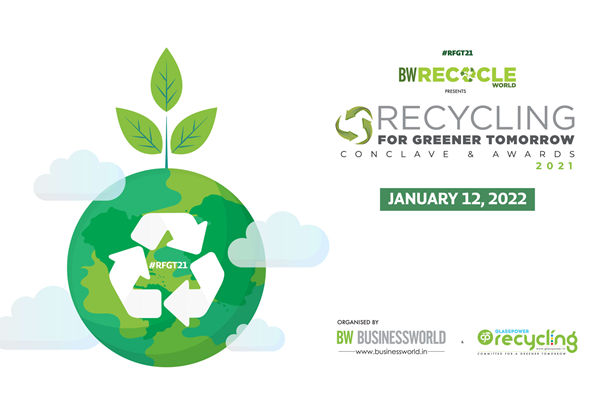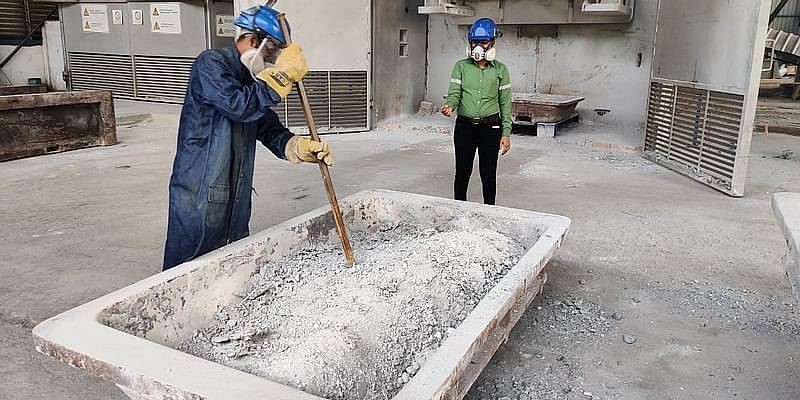

India’s largest producer of aluminium and value-added products, Vedanta Aluminium and start-up manufacturing firm Runaya Refining have secured the ‘Gold’ award at the (Business World) BW Recycling for a Greener Tomorrow Awards 2022 in the category of ‘Best in Recycling or Material Recovery Facility of the Year’.

Vedanta produces more than half of India’s aluminium at 1.97 million metric tonnes, at its smelters in Jharsuguda (Odisha) and BALCO (Chhattisgarh). However, around 1.5% of the total quantity is lost in the form of aluminium dross, a by-product that contains recoverable aluminium, aluminium nitrides and oxides, spinel, magnesium silicate, gupeiite, and sodium titanate.
Runaya Refining, through its technological tie-up with TAHA International S.A., is not only able to enhance aluminium recovery to nearly 90% but also creates value-added products for other industries.

Runaya takes the non-metallic portions of the residual dross after recovering aluminium and processes it to produce briquettes which are used as slag conditioners in the steel industry. At Vedanta’s aluminium smelter in Jharsuguda, using Runaya’s dross technology has not only ensured a significantly higher metal recovery rate but also created energy savings to the tune of 800,000 GJ and reduced CO2 emissions.
Rahul Sharma, the CEO of Vedanta Aluminium Business said, “At Vedanta Aluminium, we are keen to explore and adopt leading-edge green technologies to make our operations more sustainable, create avenues for the circular economy, and reduce our carbon footprint in the process. Our partnership with Runaya to eliminate waste and recover metal through a patented cutting-edge technology is such an example.”
Annanya Agarwal, the chief executive of Runaya Refining, added, “Runaya is a young start-up working in the field of circular economy with a vision to redefine the natural resources industry with leading-edge innovation and technology. Through this partnership, Vedanta Aluminium and Runaya Refining are not just eliminating an entire waste stream, but also decreasing the steel industry’s dependence on virgin raw materials for slag conditioners – thereby living up to the ideals of circular manufacturing and circular economy.”
Responses








